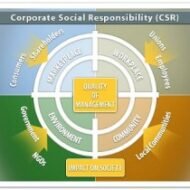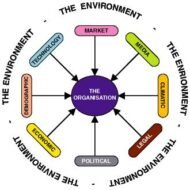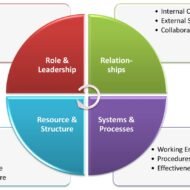Posted by Managementguru in Marketing, Social Media
on Oct 15th, 2015 | 0 comments

#Social Media Marketing Tips and Strategies I have always felt that gathering information on a particular topic is made easy when you visit the top influencers’ #social network profile in that particular niche. And people are willing to part with useful information now-a-days as it helps them establish trust amongst their followers and also convert them into returning customers or audience. That way Twitter is a great info platform where you are able to locate a topic in a jiffy since the gist has to be limites and catchy as well. That is a blessing in disguise as it helps us to hit bang on target. Social Media Marketing is now synonymous with sales and every marketing firm is in a position to find the best social media #strategy that suits its business activity. Follow @managementguru1 There are lot of social media marketing tools that facilitate the vendors to generate more leads which in turn can lead to conversions. Customers are the focal point and products and services are customized to suit their taste. Data also plays a big role for marketers to capture leads from each and every possible source. Major social media platforms are on a high taking full advantage of the situation by targeting the marketers to leverage the huge traffic to sell their products or services. It becomes a win-win situation for both sides and the customers are flushed with information on new commodities along with product reviews and competitive price info. Read the Social Media & Marketing Daily Here is a curated version of nine tweets from top social media influencers in the Tweeting Circle that gives insight as “How to leverage consumer psychology, how to generate leads, how to reward your social followers, how to boost your #social media engagement, how to carry out a successful email marketing campaign and the essential skills a social manager neeeds!” Curated from Write to Right on Twitter: “How to use the psychology of reviews to improve your social media marketing http://t.co/TwK7y6aYIZ socialmedia http://t.co/BXyPB7alyI” Curated from Jonathan Gebauer on Twitter: “7 Great Ways To Generate Leads From LinkedIn – And They Are Personal http://t.co/g7IFZ7tkTu http://t.co/mTWqnIzd9p” Curated from Kerry Butters on Twitter: “3 Great Ways To Reward Your Social Followers: http://t.co/d2dNJILphi SocialMediaMarketing SocialMedia http://t.co/5j9FIl3rMh” Curated from Jay Baer on Twitter: “Top 3 Mistakes Brands Make with Influencer Marketing via @Insightpool http://t.co/hNTdBIr24z http://t.co/AbTM9RDEkI” Curated from Marketing Technology on Twitter: “6 Ways to Maximize Social Media for Event Marketing http://t.co/83juwyTBao infographics social http://t.co/rjeTXUicPn” Curated from Tim Fargo on Twitter: “4 Steps to Boost Your Social Media Engagement growthhacking socialmediatools smm http://t.co/nwQj3G2Deg http://t.co/chGgVSTdok” Curated from Qualaroo on Twitter: “7 Email, SMS, & Push Message Hacks To Convert Trial Users Into Customers http://t.co/9LjuGMcfui http://t.co/lGwSjN6iU5” Curated from GrowthHackers SMB on Twitter: “3 Steps to Convert Followers into Users and Customers http://t.co/JxJwTWuriI http://t.co/pLyTb2Icgq” Curated from Jeff Bullas on Twitter: “10 Essential Skills a SocialMedia Manager Needs @somerocontesthttp://t.co/VkOeojHjtH smm marketingtips http://t.co/3eGbHKbByv”...

Posted by Managementguru in Business Ethics, Business Management, CSR, Economics, Organisational behaviour, Principles of Management
on Mar 15th, 2014 | 0 comments

CSR – An Image or Ethos A company’s sense of responsibility towards the community and environment in which it functions is known as corporate social responsibility.The object of social responsibilities of business has become the hot topic for discussion. Let’s not forget that really big companies are into the process of service benefiting economically backward population. It is widely accepted that accountability to owners is too narrow a concept for today’s business and that there is no reason why owner’s interests should take precedence over the interest of other claimants-employees, consumer community and the society at large. Responsibilies of Business Concerns: There is no definition of the concept of social responsibility which is valid for all business concerns and for all times. This is because responsibilities of business should be related to the changing societal expectations, which is dependent upon the social, cultural, political and other environmental forces, which are dynamic too. Business responsibility to the society goes beyond simply assuming the profit-making role. It implies that the management has to protect and improve the welfare of the society as a whole along with its own interest. What is the primary objective of a business? One common misunderstanding about the concept of social responsibility has to be clarified here. It does not challenge the primary objectives of business. It does not say that “to make profit is to sin.”Profiteering is different from profit making. Selfish interest is different from self-interest. Social responsibility is against profiteering and selfish business behavior. But profit making and self interest should be the basic elements of corporate responsibilities. Economic concerns and social concerns need not be viewed as opposite ends. They are complementary to each other. They are consistent with one another. Thus the nature and content of business responsibilities depend upon societal expectations placed on organizations which include invariably the economic performances and legal obligations, and go beyond them. How far it goes beyond depends on the economic, social and political environment in which the business and society operates. Arguments against social responsibility: The arguments against social responsibility are based on the belief that the society assigns a strictly economic role to the organizations and the concept dilutes the primary purpose of the business. Business should mind its business and business persons don’t have the right attitude to serve the society. Let it be the responsibility of government and social service organizations. Business has already enough economic and social power and no more concentration of power is necessary to business circles. Service to society is undoubtedly an important objective of business. It can render service to society by providing quality goods and services to the community; it can provide adequate opportunities to the members of the society; provide goods and services at reasonable price. Another important aspect would be to ensure control of pollution towards air, water and soil. Showing concern for the well -being of other constituencies of the society is a good gesture that helps the business to earn goodwill and support of the society as a...

Posted by Managementguru in Business Management, Principles of Management
on Feb 26th, 2014 | 0 comments

Factors of External Environment of Business What do you mean by Business Environment: The sum total of all things external to firms and industries that affect the functioning of the organization is called Business Environment. Elements of Business Environment 1. ECONOMIC 2. SOCIAL 3. CULTURAL 4. POLITICAL 5. LEGAL 6. TECHNOLOGICAL 7. DEMOGRAPHIC 8. GEOGRAPHICAL 9. ECOLOGICAL 1. Economic Environment This refers to all economic factors that influence and affects the very survival of an organization. Can be classified into · Economic factors affecting demand · Competitive forces Economic factors affecting demand The existence of an organization depends on the demand for its products or services. The customers’ ability to buy and willingness to pay determine the demand factor. The buying power is determined again by · Employment · Income taxes · Saving and · Prices The money acquired by an individual through employment is utilized for paying taxes which is the first priority and then comes saving or spending. In developing countries like India, much importance is attached to the habit of saving in the form of insurance policies or mutual fund deposits or investment on immovable assets. This makes the economy strong and stable even during times of recession, whereas we witness the economy of some developed countries entirely shaken when there is an economic depression. Sub Prime Lending Sub prime lending may prove to be disastrous for a growing or grown nation when the money is lent by the banks to third parties without proper securities or collaterals. While the initiative is intended to increase the growth rate or GDP, the end result may not live up to the expectations when the money is parted to individuals or firms with poor financial credentials. Disposable Income Disposable income also decreases when the tax rate increases and his/her ability to buy is reduced. Equally important is the willingness to by because the fact that an individual has the ability does not mean that he or she will buy. Willingness is affected by the preferences for products and the expectation about future factors like the price fluctuation, increase in one’s own income, general economic trend and so on. Competitive forces Firms have to first survive in order to succeed in the market. To accomplish this they exert competitive force on each other through one or the other following methods. · Price cutting · Promotion-advertising, personal selling · Design, feature and packing · Number and type of customer services offered give a cutting edge to firms competing in the race. 2. Social and Cultural Environment The social environment depends upon the · The class structure · Mobility · Nature of the social organization and · Development of social institutions People always have the unending desire to move from one occupational category to another and this is the main reason for high job turn over in IT industries for various reasons like pay, promotions, job satisfaction etc., This is the same reason which can be attributed to the failure of many good projects that go underway due to lack of continuation of the same initiative with which it was started. The above said process is more prevalent in urban societies than rural where scope of mobility is much the less among farmers, artisans and those engaged in traditional crafts and cottage industries. 3. Political Environment A smart manager has to be on tenter hooks to gauge the trends in political scenario that directly or indirectly affect the functioning of the firm. The political weather is highly unpredictable and may be classified into · Long-term changes · Quick changes · Cyclical changes · Regional changes Now-a-days we see that the economic depression in...

Posted by Managementguru in Organisational behaviour, Principles of Management
on Feb 22nd, 2014 | 0 comments

Organizational change is concerned with making things different and change agent is a person or group of persons who act as catalysts to bring about change. Say, managers and outside expert consultants can be called as change agents. What is Organizational Change? This is how you have to Strategise in order to Win Organizational development refers to the overall development of an organization in terms of improving the ability of that organization in tandem with the needs of the external environment and involves a system oriented approach to change. Recommended: Resourceful Guide on Organizational Development from Maryville University titled ” Organizational Development Guide: Definition, Process & Development Models “ Organizational change: All the elements of a social system like people, formal organization, informal organization, operational environment, communication, decision making and patterns of co-operation are bound to change when there is change in the external environment but this gives rise to a positive pressure which acts like a self-correcting mechanism to modify and set right the bottle-necks or loop-holes in the working system. Causes For Change Work force: The increasing awareness and educational qualification among the workforce is responsible for the attitude change. You can expect loyalty from workers above fifty but not workers who fall under the age category thirty. This is because their loyalty is oriented towards their career and not to the employer. Technology change: Internet, telecommunication systems, computers, robotics, flexible manufacturing operations have created a great impact on the working style of firms and necessitated the work force to be tech-savvy in order to survive in the job market. Economic, social, political, and physical environmental changes: Economic– Business cycles, inflation, recession, stock market crashSocial– Changing life styles and preferences of customers is the keyPhysical– Consumers, suppliers, employees, union, shareholders and the governmentPolitical– Political decisions affecting the market, pressure, legal hassles:- all these affect the working of a firm. Changes in competition: Global economy has brought big players from countries like USA, Japan, Germany and the like to compete in the same market and successful organizational are those who have adapted to competitive environment. When we talk about organizational change, we emphasize on “PLANNED CHANGE OR DELIBERATE CHANGE” in order to suit ourselves to the changing environment. Otherwise, according to Darwin’s theory of “Survival of the fittest” you will fade away in due course of evolution. This Infographic clearly reveals the fact that “It is not the strongest of the species that survive, nor the most intelligent, but the one most responsive to...








